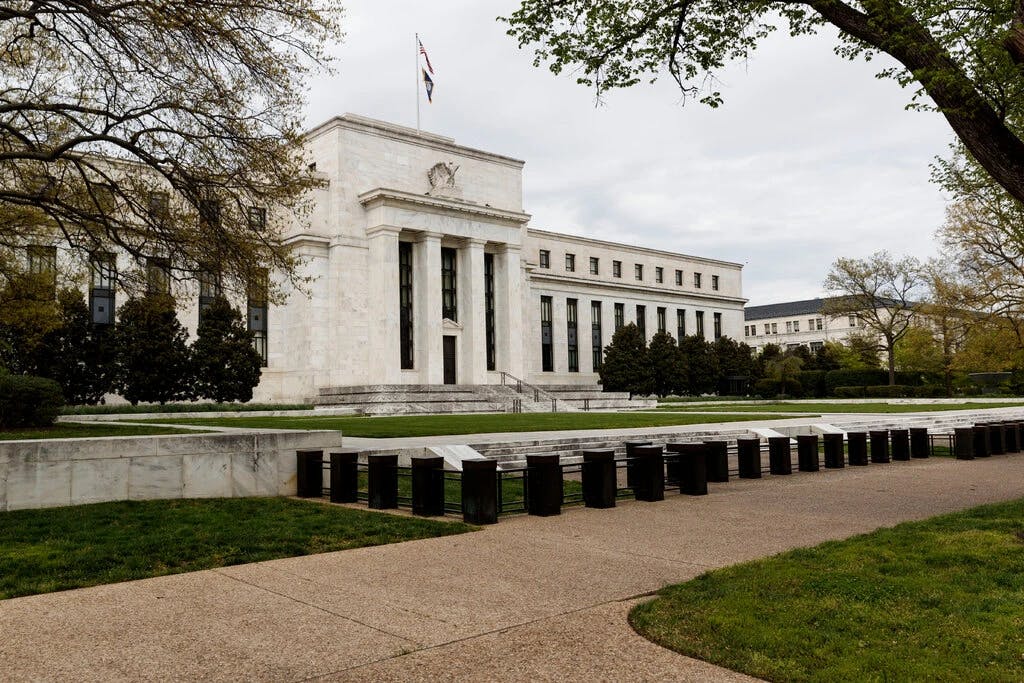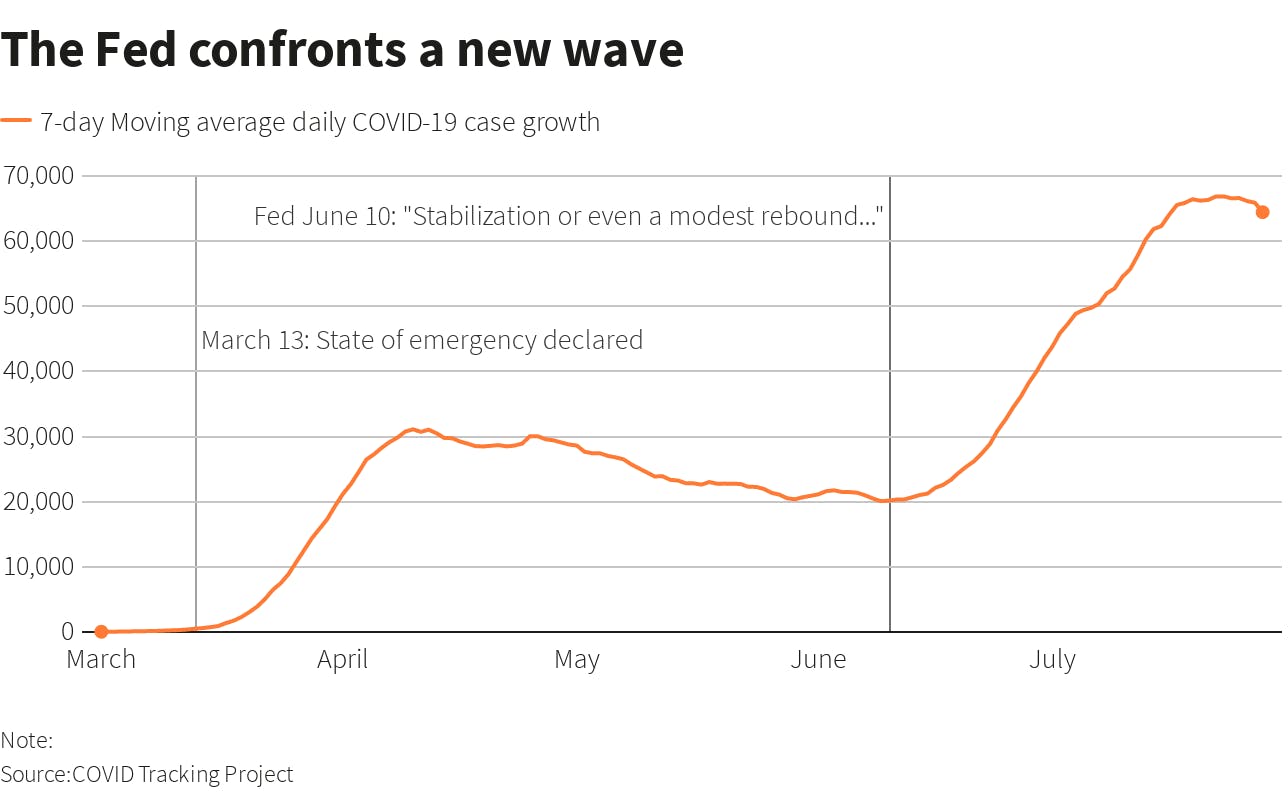 New York Times
New York Times
Fed Extends Emergency Programs on Eve of July Policy Announcement
The Federal Reserve extended its emergency lending programs on Tuesday through the end of 2020, a three-month addition that, while not surprising, signaled how lasting the economic damage from the coronavirus is proving.
The decision came as officials gathered remotely for a two-day policy meeting that will conclude on Wednesday, when the Fed releases a statement at 2 p.m.
Read more Reuters
Reuters
Fed faces viral wave, mounting risks to recovery
In a fast-changing global pandemic, this was not the turn U.S. Federal Reserve officials hoped for in early June, when their forecasts showed guarded optimism for a sharpish early economic rebound and steady slow growth to follow.
In the ensuing seven weeks, much has gone downhill.
The coronavirus pandemic has intensified and prompted new economic restrictions. Data has pointed to a possible slowdown in business and hiring. And so-far stalled talks in Washington about further government relief have pushed the country to the brink of a spending cliff.
Read more Sierra Club
Sierra Club
Even as Big Oil wanes, the industry’s toll on communities in the Permian Basin continues
Last January, Penny Aucoin had barely been asleep for two hours when, at two thirty in the morning, she was awakened by her dog barking. As she tried to calm him down, she heard a loud pop followed by a whoosh. She and her husband, Dee George, rushed outside to see what had happened and were immediately showered with fluids that burned their eyes and smelled like fuel. While George called 911, Aucoin ran around the yard gathering up the family’s chickens.
It was an hour before the oilfield technicians arrived to shut off the leak near their home in Carlsbad, New Mexico. By then, the family’s home and yard were coated with an oily residue, and the couple were soaked through. It turned out that a pipeline about 100 feet from their home containing produced water had burst—“produced water” being the petroleum industry’s euphemism for the toxic mix of oil, gas, and chemicals that is a byproduct of fossil fuel drilling. A firefighter told them that they didn’t need to evacuate. “He said it’s flammable but not explosive,” George recalled. The next morning, Aucoin joked, “if anybody came near me with a match, I’d probably have gone poof!”
Read more Fortune
Fortune
Opinion: America needs a major infrastructure overhaul—and it must be green
America desperately needs an overhaul of its infrastructure. President Trump’s announcement in March of a vast $2 trillion stimulus package was a step in the right direction, one that drew bipartisan support. But his refusal to acknowledge the critical importance of rebuilding for greater climate resilience risks wasting this once-in-a-lifetime sum. The disastrous effects of rising temperatures on our planet could not be more evident. In the past few months in the U.S. alone, storms and tornadoes in the south, wildfires in California after a historically dry winter and accelerating sea-level rises all foretell an impending calamity. This catastrophe is happening right in front of the president’s eyes. By scrapping environmental reviews of infrastructure projects President Trump is squandering America’s future.
Read more Forbes
Forbes
Opinion: Clean Energy’s Jobs And Sustainability Must Anchor A Green Recovery
If the dramatic economic implications of COVID-19 have taught us anything in the present, it is that in the aftermath of the pandemic we need to shape a new narrative for the future.
The crisis has super-charged the imperative to green our economies, pushing fossil fuel markets to the breaking point but also reinforcing convictions that our best chance of recovering is by prioritizing clean, zero-carbon energy.
It has done much more than remind us that tackling climate change is essential for business – it has shifted our focus from the short-term costs of the energy transition to the overall “system value” underpinning what’s being called the “Great Reset.”
Read more